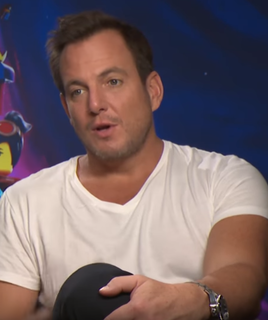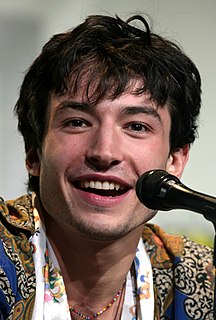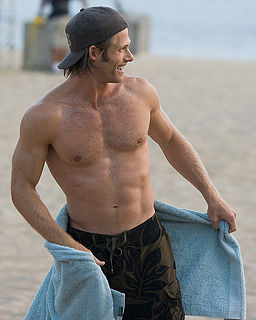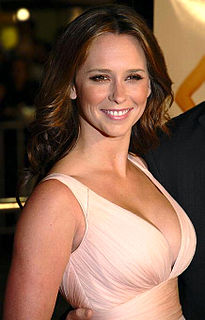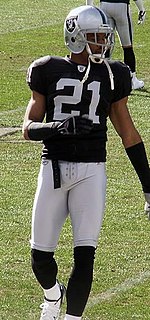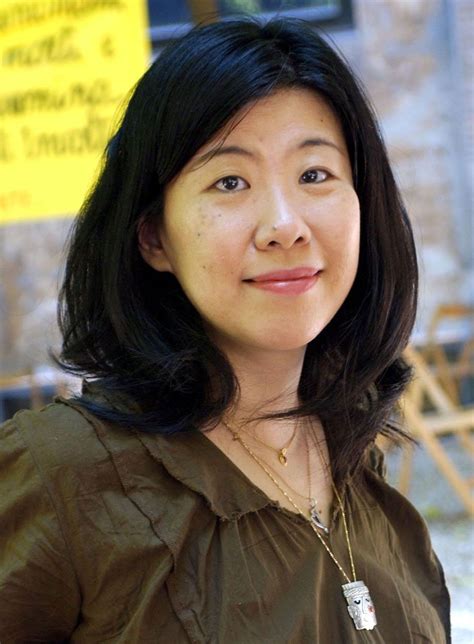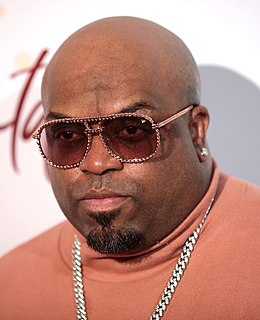A Quote by Will Arnett
Because I think a lot of people felt like, ultimately - and this isn't the first time I've said this, so I'll bore you again with it - but ultimately it was... I think it felt like homework a bit for people.
Related Quotes
But I felt like Pablo Escobar felt like he was an honorable businessman. And when he killed people, I think he felt he did it because they were honorable. That they were liars and were trying to cheat him. I don't think he had a lot of respect for the politicians in Columbia at the time, so he had quite a lot of fun killing them.
I think ultimately, people are selfish in that department [blues], in a good way - the reason we're attracted to art is because it somehow reflects us. And I think, ultimately, we're a tribal people by nature. We're not individualistic. We almost like to hear that there's other people in a worse state than us. Sometimes even more than we like hearing there are people in better states than us.
I felt a certain modicum of success because I had been paid well to be an actor for the first time in my life, but I felt like I had done adolescent work on the show, and stepping into the New York theater arena was the first time I felt like I'd come into my own. I felt like I was proving myself in a gladiatorial arena.
Gandhi said it; Frederick Douglass said it. A lot of people have probably said 'It's not Christ that I have a problem with, it's his people.' And that was my struggle: it's God's people. I felt disenfranchisement. I felt so much abuse from organized religion because I'm walking in a direction that a lot of them couldn't fathom and can't understand.
I was an introverted kid; I liked my time alone. And the rest of my family is pretty extroverted, so I felt like a bit of an oddball. They're very gregarious and charming and charismatic people. I always felt like I was struggling as a young person. I think everyone was very surprised to hear that I wanted to be an actor.
If you don't connect yourself to your family and to the world in some fashion, through your job or whatever it is you do, you feel like you're disappearing, you feel like you're fading away, you know? I felt like that for a very very long time. Growing up, I felt like that a lot. I was just invisible; an invisible person. I think that feeling, wherever it appears, and I grew up around people who felt that way, it's an enormous source of pain; the struggle to make yourself felt and visible. To have some impact, and to create meaning for yourself, and for the people you come in touch with.
We'd been on Geffen for a long time, and I think we felt that we needed a change. I just don't think we felt very close to the people at the label after all this time or that they understood what we were trying to do. I don't have any regrets, because at the time we signed with Geffen, it was the right thing to do.
In places where a loved one has died, time stops for eternity. If I stand on the very spot, one says to oneself, like a prayer, might I feel the pain he felt? They say that on a visit to an old castle or whatever, the history of the place, the presence of people who walked there many years ago, can be felt in the body. Before, when I heard things like that, I would think, what are they talking about? But i felt I understood it now.
I feel like I'm really accomplishing something with harmony and melody. Ultimately, again, I'm not a singer, some people can sing with an "I" or an "a," some people can sing and they can sang. I think I can "sang" more than anything. I'm not a formal singer and I'm an MC, but it's secondary to the second nature of just melody. You know but ultimately I'm a writer and I do soul music. Whether it's in song form or rhyme scheme, it's soul.
Well, it has to do with very deep things, because it might be that imagining yourself as a girl is a diminishment. But it is something that when I made "The Devil Wears Prada" it was the first time in my life, 30 years of making movies, that a man came up and said I know how you felt. I know how you felt. I have a job like that. People understand.
